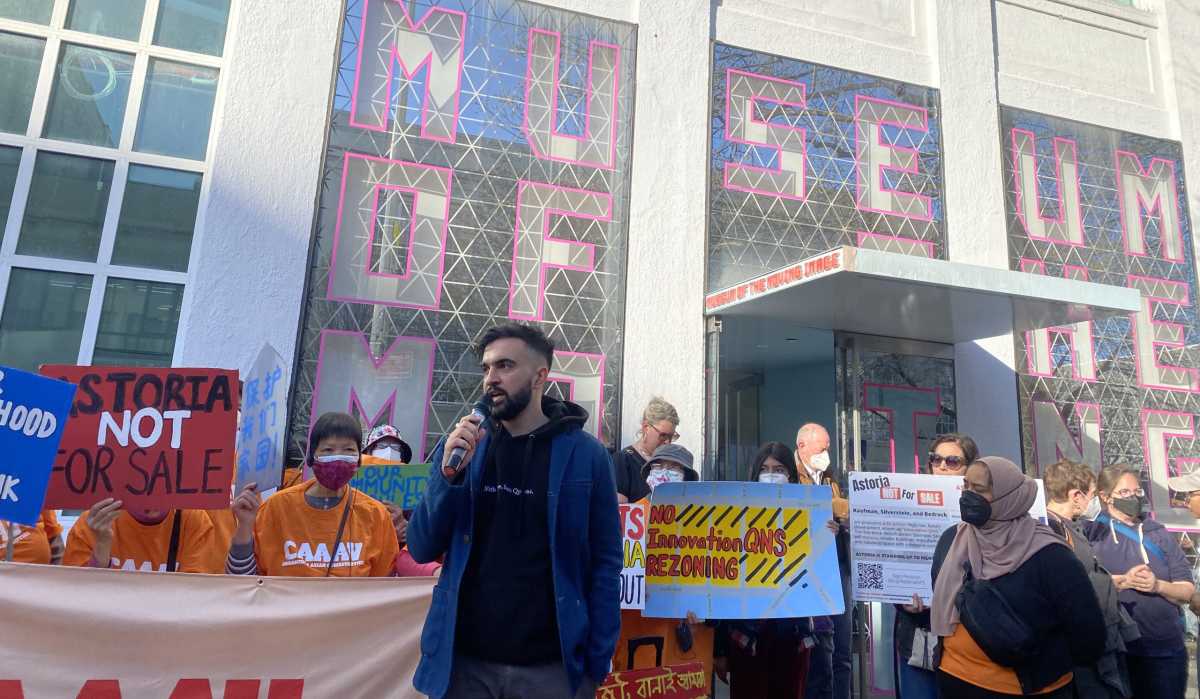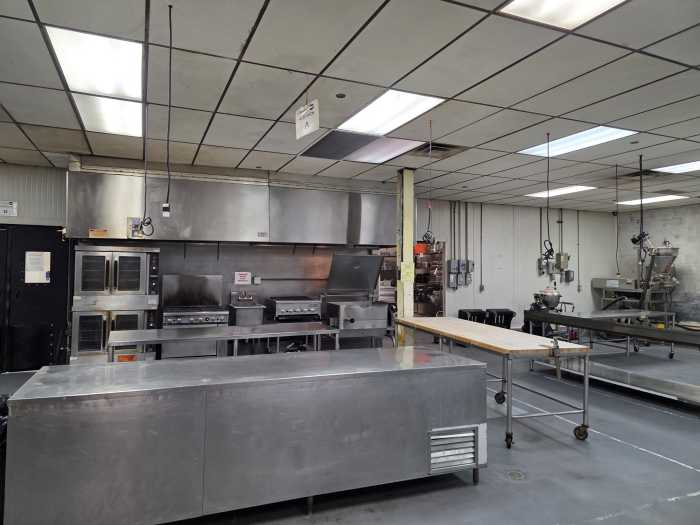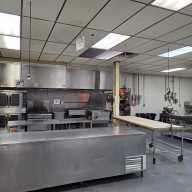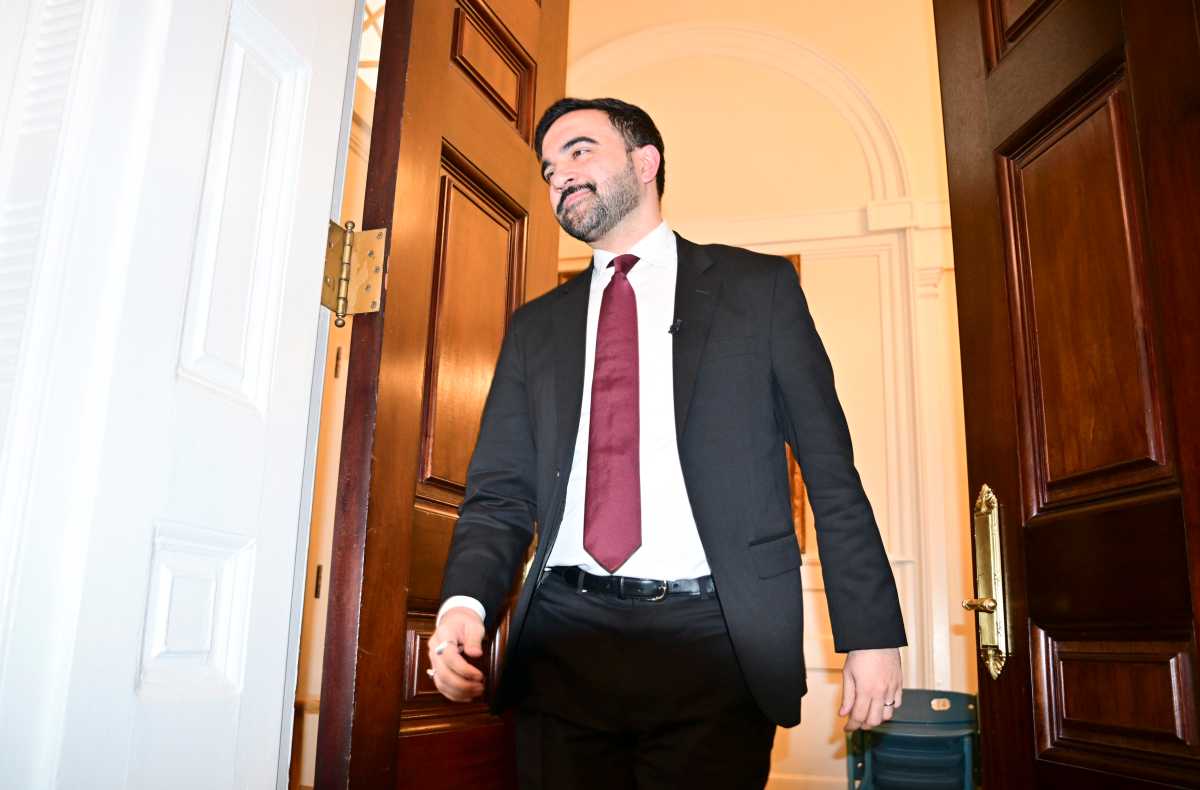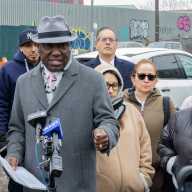Astoria residents and activists made their opposition to Innovation QNS loud and clear Wednesday night outside the Museum of the Moving Image where developers held a town hall presenting the project, which would add a set of 12 luxury high-rise buildings centered on five blocks around the intersection of Steinway Street and 35th Avenue.
The $2 billion project, which is led by Kaufman Astoria Studios, Silverstein Properties and BedRock Real Estate Partners, is touted by developers as a benefit to the community, adding 711 affordable apartments and “much-needed” open space. However, residents are convinced Innovation QNS will raise the cost of living, completely changing the economic and cultural makeup of their neighborhood.
Innovation QNS will reserve about 25% of its residential spaces for affordable housing, which would leave 2,120 units priced at the market rate: ranging from $2,000 to $3,000 a month for a studio to $4,000 for a two-bedroom.
Innovation QNS consists of 12 buildings, with eight standing at over 15 floors and the two largest at 27 floors.
About 60 residents passionately chanted “Innovation QNS is gentrification QNS,” outside of the town hall where developers presented the project inside. The protesters, many of whom were immigrants, said that these luxury buildings will inevitably drive up rents in the surrounding area, forcing longtime residents to move — as seen previously in gentrified neighborhoods like Long Island City and Williamsburg in Brooklyn.
Hazra Rahman, a two-decades-long resident of Queensbridge Houses, said that this project would displace her and her husband.
“Astoria has been a landing place for working-class Bengali people and we have a right to stay,” Rahman said. “Our family should be able to live and thrive in Astoria, but they are being pushed farther and farther away. There are no deeply affordable apartments for us. Our beloved small businesses are going to get priced out, too.”
Bishop Mitchell Taylor, a partner with Innovation QNS and CEO of Urban Upbound, stated that instead of these luxury buildings driving up the cost of living in the area, it will lower rents in Astoria — which angry protesters called out as a lie.
“To create 700 affordable units, then to create an additional supply that will drive prices of existing [housing] stock down, I think creates a tremendous opportunity for us, especially Black and brown communities that have historically been left out of this part of Astoria,” Taylor said.
As protesters made their way inside the Museum of the Moving Image to join the town hall, they had a chance to directly confront developers during the public comment portion of the meeting.
Assembly member Zohran Mamdani stood alongside disgruntled residents and directly responded to Taylor’s comments.
“Bishop Taylor, you had been talking about the impact of what those 25% of affordable units would do — that they would drive down the rents in the surrounding area — I have a different analysis about the 75% of market-rate units where they drive up rents,” Mamdani said.
Other residents echoed these concerns during the town hall.
Matt, an Astoria tenant asks, “can you give me an example of when a development like this has lowered the cost of living?” They had NOTHING pic.twitter.com/n3mMk9Wk4z
— CAAAV: Organizing Asian Communities (@caaav) April 20, 2022
Mamdani said that Astoria is in the midst of a massive displacement problem and Innovation QNS’ plan to add 711 affordable apartments is outweighed by the detriment to the community.
“What we’re looking at is only going to accelerate the displacement faced by so many of my constituents,” Mamdani said. “If you have more than 2,000 market-rate apartments coming up here, we will see more and more landlords looking at those units as the new going rate for living in Astoria.”
This local issue in Queens is indicative of a larger one present throughout the city: New York is in the midst of a housing crisis. Rents in New York rose 33% between January 2021 and January 2022, nearly double the national rate. As luxury high-rises went up, public housing and affordable neighborhoods became scarce.
Though some debate that luxury developments, like Innovation QNS, caused this housing crisis, others say the high-rises help satisfy the market, instead alleviating the issue, as the demand to live and invest in the city has increased dramatically.
Despite the complicated debate over how to solve the city’s pervasive housing crisis, many Astoria residents are sure of one thing: they don’t want this 27-story development in their neighborhood.
Mackenzi Farquer, the small business owner of We Heart Astoria and Lockwood Shop located just a few blocks away from the proposed development, said that the project is out of character for her community.
“Those of us who are raising families and believe in the connected nature of our neighborhood, who want to see fair equitable housing built, this is not going to help any of us,” Farquer said.
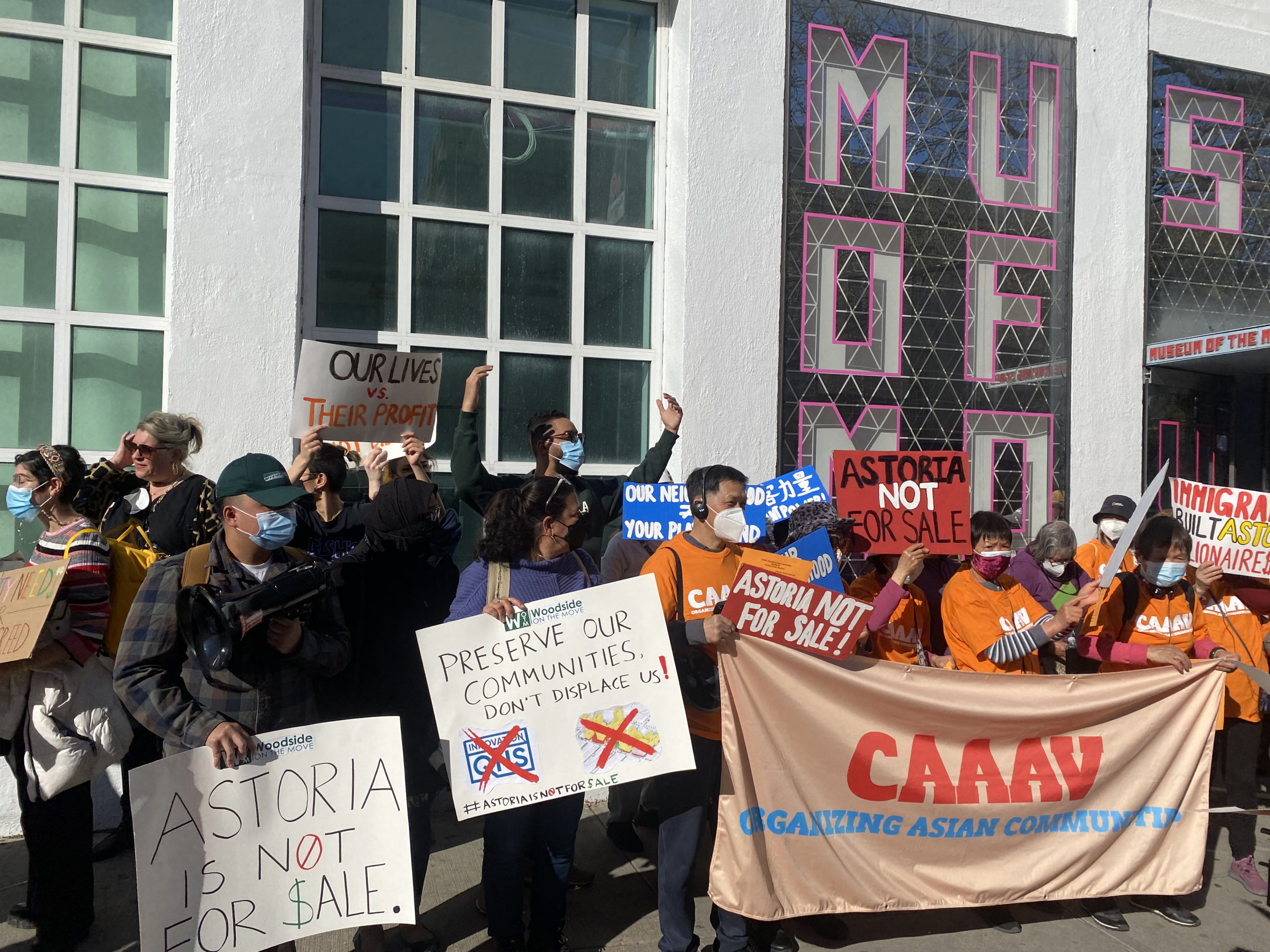
Lifelong Astoria resident Jannatul Ahmed said that it breaks her heart to see so many residents being displaced because of gentrification and luxury developers.
“This neighborhood helped me and my family build our lives, and in return, we helped build this community,” Ahmed said. “Immigrants built Astoria. Billionaires are trying to take over and we won’t let them. We need to ensure that the very people that love, build and live in this community are prioritized.”
Other residents supported the plan, saying that this development would bring new businesses and more spending into the neighborhood. Innovation QNS estimates $50 million in new annual spending at neighborhood businesses.
Claudia Coger, former president of the Astoria Houses Tenants Association, said she supports Innovations QNS.
“We’ve been advocating for these types of amenities that are not here in our area,” Coger said. “People have to leave and get on a bus to get what they need, and that should not be.”
Innovation QNS would bring 250,000 square feet of space for small businesses, startups and local nonprofits. It also plans to dedicate space for restaurants, entertainment, state-of-the-art cinema and wellness facilities.
The project is approaching the city’s public review process in the coming months. The Department of City Planning will be holding a hearing to determine environmental impacts prior to certification.
Innovation QNS hopes to get final approval by the fall of 2022. Ultimately, the a New York City Council vote will decide whether the project is approved or not.
“Critically, this community is facing a significant housing shortage, and Innovation QNS will create more than 700 permanently affordable apartments in our community that don’t exist today, with more than 75% of those for less than $1,500 per month,” said Tracy Capune, vice president of Kaufman Astoria Studios.

